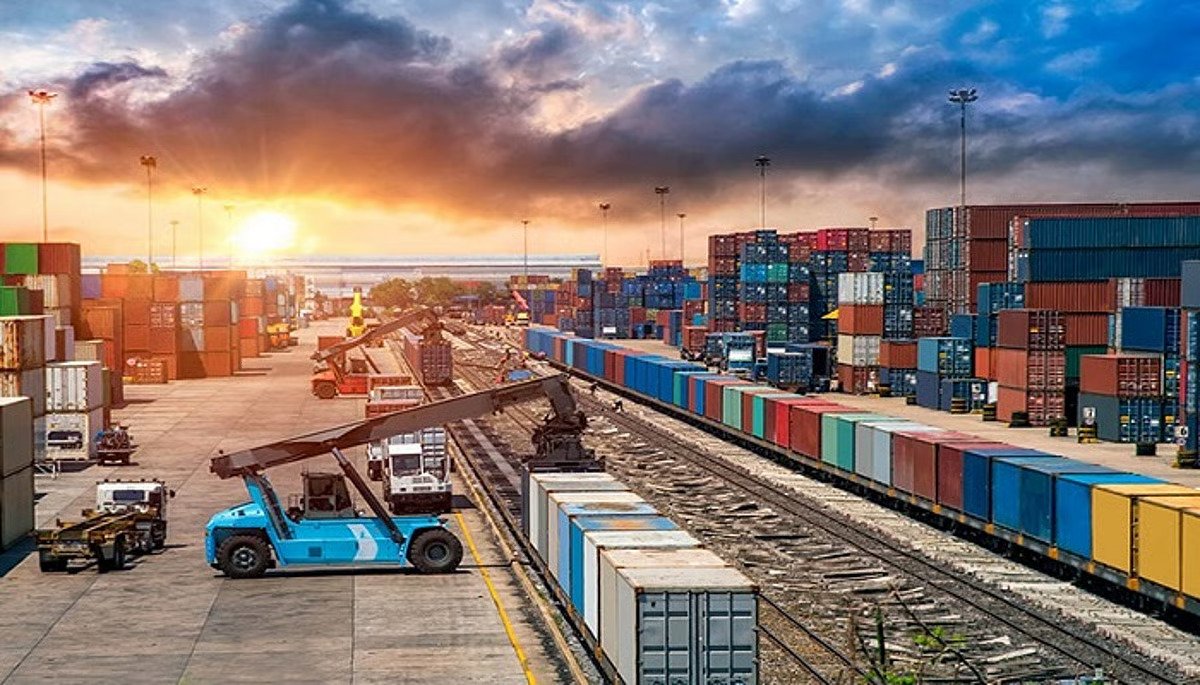The Dedicated Freight Corridor Corporation of India (DFCCIL) has marked a significant milestone in the nation’s logistics landscape with the inauguration of India’s first private Gati Shakti Cargo Terminal. Located on its western route near Surat in Gujarat, this pioneering facility was constructed by the Sawariya Shakti Group. Spanning approximately 120 acres, the New Sanjali Terminal is strategically positioned between the New Sanjali station of the freight corridor and the existing Panoli station of Indian Railways.
This development is a crucial step towards enhancing the efficiency and sustainability of freight movement across the country, aligning with the broader objectives of the PM Gati Shakti National Master Plan. The inauguration ceremony, attended by key officials from DFCCIL and representatives from the Sawariya Shakti Group, underscored the strategic importance of this project. The Managing Director of DFCCIL lauded the terminal as a significant achievement in the freight corridor’s logistics expansion strategy. This private sector participation in the Gati Shakti initiative is a testament to the government’s commitment to leveraging private capital and expertise for critical infrastructure development. Such collaborations are vital for building a robust, eco-friendly, and equitable logistics ecosystem that can support India’s economic growth and urban development.
The Gati Shakti Cargo Terminal is designed to streamline the movement of goods, reducing transit times and operational costs for businesses. By providing a dedicated facility for cargo handling on the western freight corridor, it will significantly decongest existing railway lines, which are primarily used for passenger traffic. This segregation of freight and passenger movement is a cornerstone of modern railway planning, leading to increased efficiency, reduced carbon emissions from idling trains, and improved overall safety. The terminal’s large footprint and strategic location are expected to facilitate seamless last-mile connectivity for industries in the region, boosting trade and economic activity. Furthermore, the establishment of such private cargo terminals under the Gati Shakti framework is a powerful enabler for achieving broader sustainable development goals. By shifting more freight from road to rail, India can significantly reduce its carbon footprint, as rail transport is inherently more energy-efficient and less polluting per tonne-kilometre.
This contributes directly to the nation’s commitment to creating zero-net carbon cities and a greener supply chain. The enhanced efficiency in logistics also benefits various industries, leading to more competitive pricing for goods and services, which can indirectly contribute to economic equity. The successful commissioning of the New Sanjali Terminal sets a precedent for future private sector involvement in India’s logistics and infrastructure transformation. It demonstrates the potential for synergistic partnerships between public entities like DFCCIL and private developers to accelerate the pace of development. As India continues its journey towards becoming a ‘Viksit Bharat’ (Developed India), the role of integrated, multi-modal logistics infrastructure, powered by both public and private investment, will be paramount in ensuring efficient, sustainable, and inclusive economic growth across all regions. This project is a tangible step towards building the backbone of a modern, interconnected India.
Also Read :Indian Railways Plans 1000 New Trains In 5 Years Bullet Train By 2027


